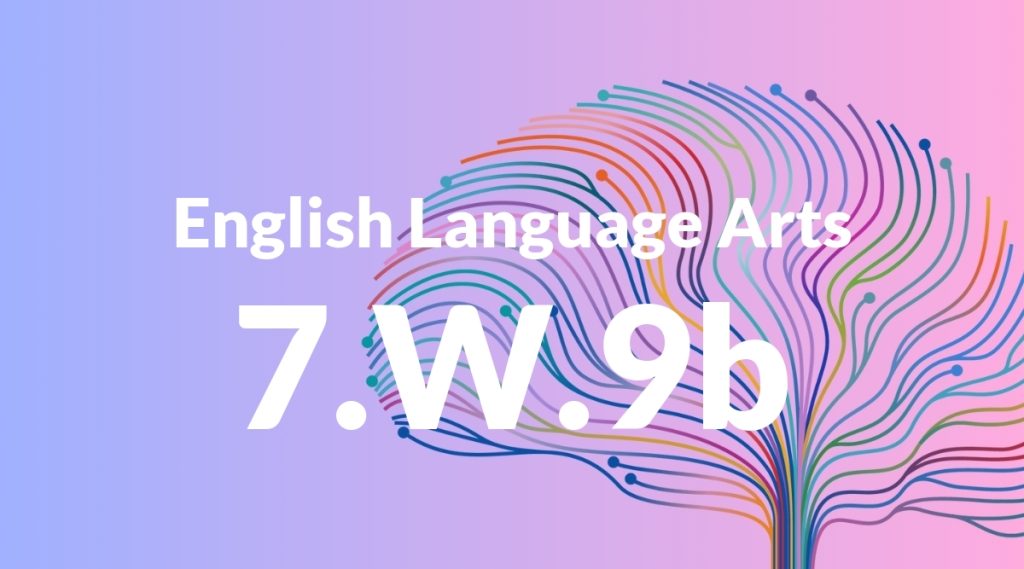Standard: 7.W.9 – Draw evidence from literary or informational texts to support analysis, reflection, and research.
Grade level: Grade 7
Subject: English Language Arts
Domain: Writing
Teacher Overview
This standard emphasizes the importance of using textual evidence to support analysis, reflection, and research. It is crucial in developing students’ abilities to think critically and write persuasively, skills that are essential for academic success and informed citizenship. Students should have a solid understanding of text comprehension, identifying main ideas and details, and summarizing information from texts.
After mastering this standard, students will be able to conduct more sophisticated research, develop stronger arguments, and write more persuasively.
Common Misconception 1
Students may believe that any opinion can be supported by textual evidence. This is incorrect because not all evidence is equally strong or relevant. Students need to learn how to select the most appropriate evidence to support their analysis.
Intervention 1
Teach students how to evaluate evidence by discussing the criteria for strong evidence and practicing selecting the best evidence from sample texts.
Common Misconception 2
Students might think that paraphrasing is not as valuable as direct quotes. This is a misconception because paraphrasing can often clarify complex ideas and integrate information more smoothly into their writing.
Intervention 2
Provide exercises that require students to paraphrase complex passages and discuss how paraphrasing can be used effectively in their writing.
Prerequisite Knowledge
Students should be familiar with basic text comprehension, identifying main ideas and details, and understanding how to summarize information from texts.
Subsequent Knowledge
Students will develop advanced research skills, critical thinking, and the ability to construct well-supported arguments in their writing.
Instructional Activities
- Analyzing a short story and writing an essay using textual evidence.
- Conducting a mini-research project on a historical figure and presenting findings with cited sources.
- Writing a reflective essay on a personal experience, supported by quotes from a related text.
- Creating a character analysis chart using evidence from a novel.
- Participating in a debate where students must use textual evidence to support their arguments.




